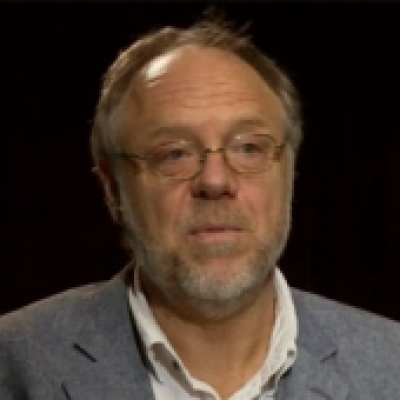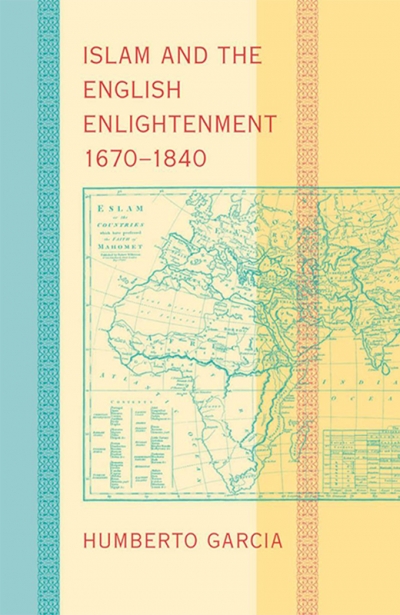European Enlightenment is no stranger to extended flirtations with Islam
 Kevin Barrett
Kevin Barrett
Islam and the English Enlightenment 1670–1840 by Humberto Garcia; Pub: Johns Hopkins University Press, Baltimore, Maryland, 2012, 368 pages. Price: $49.49 Hbk; $50.81 Amazon Kindle.
The story of How Islam Created the Modern World, as Mark Graham’s 2006 title puts it, is fairly well known. Even Eurocentric scholars admit that most of the “advances” credited to Western civilization have Islamic roots. Graham shows how the standard Western narrative of Islamic custodianship of the culture, science, and philosophy of the ancient world during Europe’s Dark Ages misses the way the Islamic world adapted and creatively developed its ancient inheritance. The European Renaissance was therefore less of a rediscovery of ancient Greco-Roman civilization than an adaptation of contemporary Islamic civilization.
But Europeans were and still are loathe to admit this. Europe’s identity was largely founded on a rejection of Islam, as reflected in the epic tales of Charlemagne, Roland, and El Cid, and in the theological fulminations of popes, prelates, and even poets (Dante Alighieri, the all-time greatest Christian poet, was a brilliant plagiarist who borrowed most of his material from Ibn ‘Arabi and the Islamic Isra’ and Mi‘raj literature — yet remained fundamentally hostile to Islam).
Despite such hostility, the European Renaissance grew out of an appropriation of Islamic civilization. Since then, the West has adapted and developed what it borrowed, just as the Islamic world has adapted and developed what it had itself inherited from ancient sources. But few realize that Islamic influences on Western culture have continued beyond the Western Medieval and Renaissance periods. One little known area of influence is Islam’s contribution to the English Enlightenment — the subject of an excellent 2012 study by Vanderbilt University professor Humberto Garcia. Thanks to Garcia’s book, I was surprised to learn that some of my Unitarian ancestors were practically crypto-Muslims, and that their Islam-inspired radical agitations were a major force driving the Enlightenment.
Growing up in a Midwestern family of lapsed Unitarians (we visited the famous Frank Lloyd Wright church in Madison, Wisconsin only occasionally) I was never taught what Unitarianism was or where it came from. As best I could discern, Unitarianism means spending one or two Sundays a year in a uniquely beautiful church, singing Kumbaya, and preaching tolerance and diversity with barely a mention of God.
Though today’s Unitarians are a harmless and somewhat ineffectual lot, supremely in tune with the dominant zeitgeist of “secular humanism on steroids,” the founders of Unitarianism were dangerous radicals who challenged the power structure of their day and the belief system on which it was based. The three central tenets of Unitarianism amounted to a harsh dismissal of the central irrational elements of Christianity. First, Unitarians insisted on the unity of God (what Muslims call tawhid) and therefore rejected the Holy Trinity. Second, they rejected the doctrine of Original Sin — the perverse idea that a perfect God would create a totally flawed, “fallen” world, and that human beings were the most horrifically flawed part of creation. Third, they emphasized the importance of using human reason in understanding scripture. In all three of these doctrines, the founding Unitarians were essentially rediscovering truths that had been clearly stated in the Qur’an more than 1,000 years earlier.
Garcia shows how these radical (and radically rational) ideas challenged the superstitions on which the European church-state power structure was built. From the divine right of kings to the trinity to the crucifixion as redemption from original sin, obscurantism and mystification were at the heart of the power process that forced people to unquestioningly accept the oppressive hierarchies under which they lived.
Unitarian ideas were so dangerous that they had to be left unpublished, softened, or disguised for public consumption, lest the person expressing the ideas find himself imprisoned or worse. Henry Stubbe’s pro-Islamic The Rise and Progress of Mahometanism, for example, was written circa 1671 and privately circulated thereafter. But it remained unpublishable until 1911, more than three centuries later (anyone publishing it would have been risking his neck). Stubbe praised Islam’s policy of tolerating and protecting religious diversity, favorably contrasting it with the repressive practices of Christendom in general and England in particular.
Stubbe’s dangerous ideas influenced several generations of English Unitarians as well as allied freethinkers, radicals, and social reformers of various stripes. In this English Enlightenment tradition, Garcia writes,
Islam is the ally of the radical Enlightenment, an underground international movement that defined its theological and political heterodoxy through borrowed legends, stories, and motifs associated with various prophetic strains of near eastern monotheism.
The Tory defenders of the status quo attacked English Enlightenment figures as “Protestant Mohametans.” In language that sounds eerily like the Islamophobia of today’s right-wing lunatic fringe, Tory pamphleteers imagined a vast international conspiracy of pro-Enlightenment Unitarian protestants working with Muslims from the Ottoman lands and Morocco with the common aim of overthrowing Christian civilization in general and the British monarchy with its state church in particular.
As Garcia shows, these fears, while grossly exaggerated, were not entirely groundless. Stubbe’s work reached an audience of English followers of the Hungarian Count Teckely, who led a Protestant Republican rebellion against the Austro-Hungarian Habsburg Empire, allying with the Ottomans and fighting alongside them in the ill-fated Battle of Vienna in 1683. Garcia writes of
English Teckelites, or radical dissenters who grounded a reformist agenda on constitutional principles that required a heretical rereading of the Islamic prophetic tradition. Stubbe promoted such an agenda during the same period that the Hungarian “malcontents” were forming an alliance with the Ottoman Porte. The Rise and Progress of Mahometanism makes three controversial claims: first, that Islam revived Arian Christianity, an anticlerical messianic Judaism that upheld Christ as a prophet and, as a result, was marginalized by the persecution of corrupt Trinitarian churches. Second, that Christianity’s decline and Islam’s rise is a legitimate response to the combined influence of Trinitarianism and the clergy, political theologies that promote despotic monarchies. And third, that Mahometanism is a natural faith worthy of admiration. The Prophet’s civic laws have accomplished in less than a century what Trinitarian Christians could not in over a millennium: his laws have anchored a state-sponsored (rather than ecclesiastical) toleration policy for all religious minorities on a solid constitutional foundation that originated with Noah’s covenant as prophetically renewed by Abraham, Moses, and Christ. Like Teckely, Stubbe treats Islamic toleration as the antidote to the religious and political contentions that have plagued Europe and England since the Protestant Reformation.
The Tory propagandists had good reason to fear that Stubbe and his school might consider allying with Muslim polities against the British crown,
Stubbe has no qualms about justifying Islam’s rise to geopolitical domination, because the true opponents to the Christian faith are the Trinitarians, “enemies to all human learning”: St. Athanasius, for his false teachings about the “son of God,” and Emperor Constantine, for rigging the Nicene Council elections in favor of the Trinitarian heresy. Stubbe argues that Islam was spread not by the sword but by the word.
Garcia’s account suggests that the real source of 17th and 18th century Islamophobia was a sort of unconscious ideological inferiority complex. Stubbe’s critique of Constantinian Christianity, the Nicene Council, and Trinitarianism was difficult to refute, so his opponents resorted to ad hominem attacks.
Stubbe’s influence sparked what Garcia calls “Islamic republicanism” — radical egalitarian opposition to the British crown, the power hierarchy atop which it sat, and the state church it had created to serve its own interests. These institutions ran on mystification whose ubiquitous injunction was to just believe and obey, don’t ever question or critique. And the supreme example of mystification in service to tyranny was the Trinity.
This underground Islamic republican movement resonated throughout the 18th and early-19th centuries, allying itself with other Enlightenment currents that culminated in the French Revolution. Naturally the Islamic Republican affinity for the French revolutionaries, and later its flirtation with a self-proclaimed Mahdi named Napoleon “Ali” Bonaparte, made the movement seem even more terrifyingly subversive to the guardians of the British establishment.
Before reading Islam and the English Enlightenment I had no idea that Samuel Taylor Coleridge’s famous poem Kublai Khan, which I encountered in English literature seminars, is a disguised disavowal of the great Romantic poet’s earlier flirtation with pro-Bonaparte Islamic republicanism! The “stately pleasure dome” of the poem, Garcia explains, represents the utopian Napoleonic Islamic republican dream that Coleridge and Robert Southey had fallen for in their youth, but grew disillusioned with in later years.
Like Coleridge and Southey, two other leading British Romantics, Percy and Mary Shelley, went through a phase of equating their radical utopian ideas with Islamic republicanism — in their case what Garcia calls “‘Gnostic’ Shi‘ite Islam.” Like Coleridge, Percy Shelley disavowed this phase of his intellectual journey in a poem that has become a canonical classic. In Garcia’s reading, Shelley’s The Revolt of Islam announces Shelley’s own revolt against his youthful Islamic republicanism. Mary Shelley, however, took a different path: Garcia reads her novel The Last Man as critical of her husband’s turning against Islamic republicanism and Islam in general.
Garcia’s book is worth reading not only as a fascinating slice of hidden history, but also as a meditation on the past with suggestive implications for the present. Today, as the Islamic Republic of Iran comes into the crosshairs of a decadent and desperate Zionist-led West, it is instructive to learn that the specter of Islamic Republicanism as a civilizational alternative has been terrorizing Western tyrants for more than three centuries.


No comments:
Post a Comment